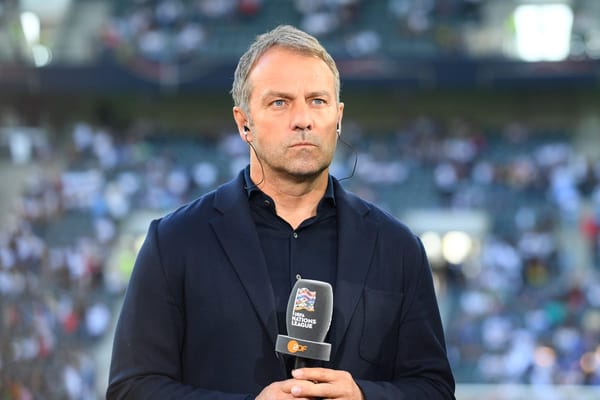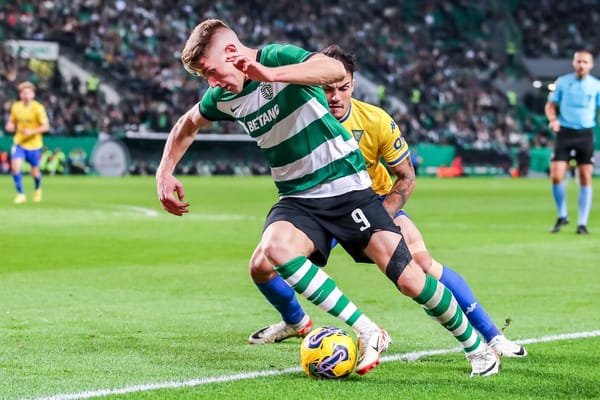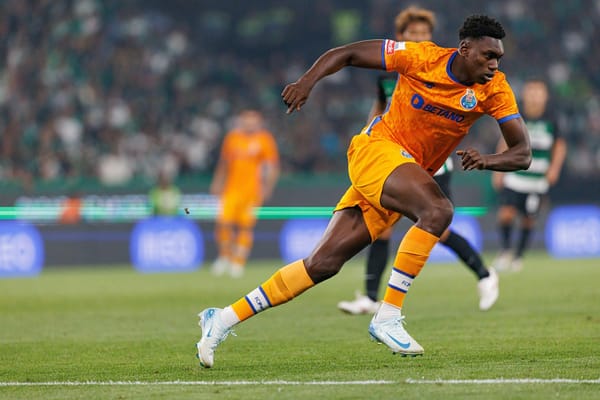Barca - Atleti: What changed? Or did it?
Barcelona showed their true and rather vintage colours against Atletico Madrid. So what changed?
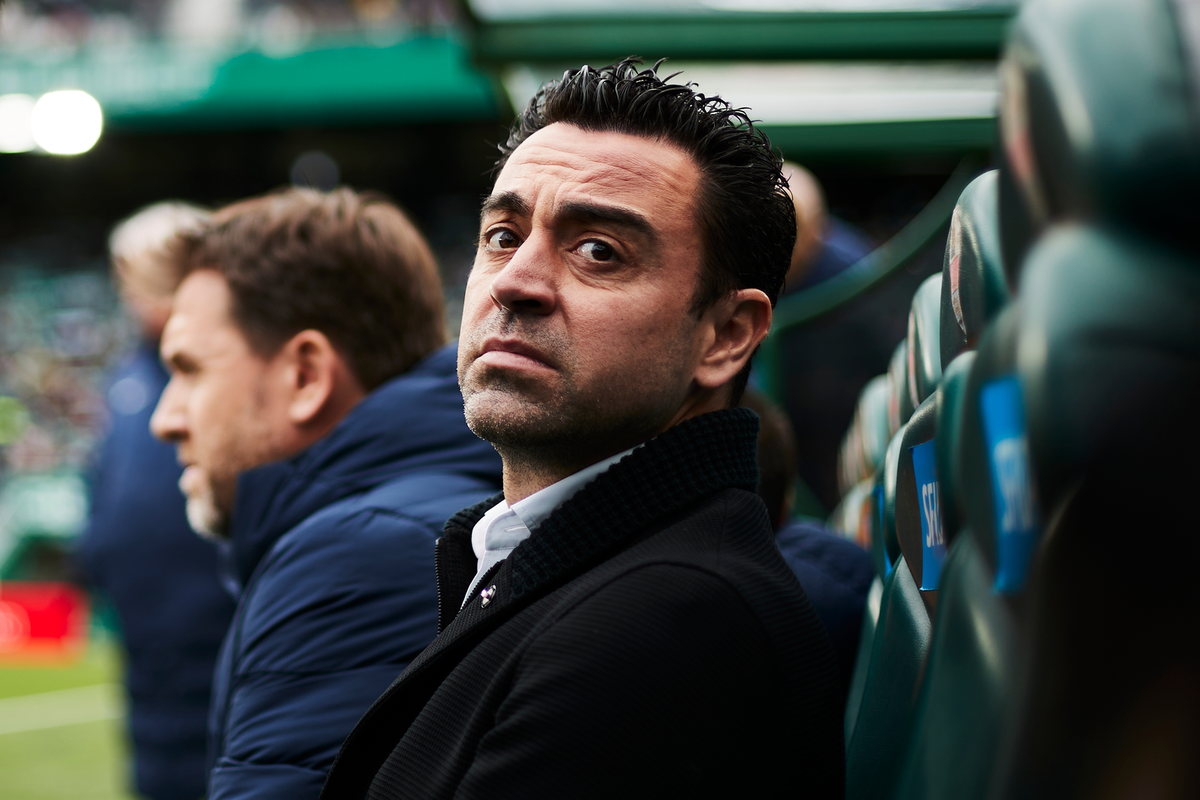
The ball was zipping around. Once again. Smart triangles. Short passes. Quick 1-2's. Quick transitions. Fast movements. Control. Tempo. Pausa.
Many die-hard Barca fans had not expected this. More so against Atleti, the most in-form team in the league at the moment. The lingering hope was that Barca would somehow nick a win against the run of play, but the gnawing fear was that this would be a loss and a season-defining one.
The opening 45 minutes proved to be anything but. The Barca midfield, the engine room of every good Barca side, was humming again. There had been a billion theories on why, with players of the likes of Ilkay Gundogan, Pedri and Frenkie De Jong, Barca's midfield had been anonymous for the majority of the season, but in this game, against Atleti, all those theories were forgotten as these insanely technical players suddenly found their groove back.
With Gundogan, expertly taking on the playmaker role, De Jong making his characteristic carries from the deep, and Pedri being Pedri - Barca was back to controlling the midfield, which most culers are used to taking for granted, but haven't experienced for most of this season (or last season if we are being entirely honest)
So what changed?
Well, let's start with formations and team selection!
Formations
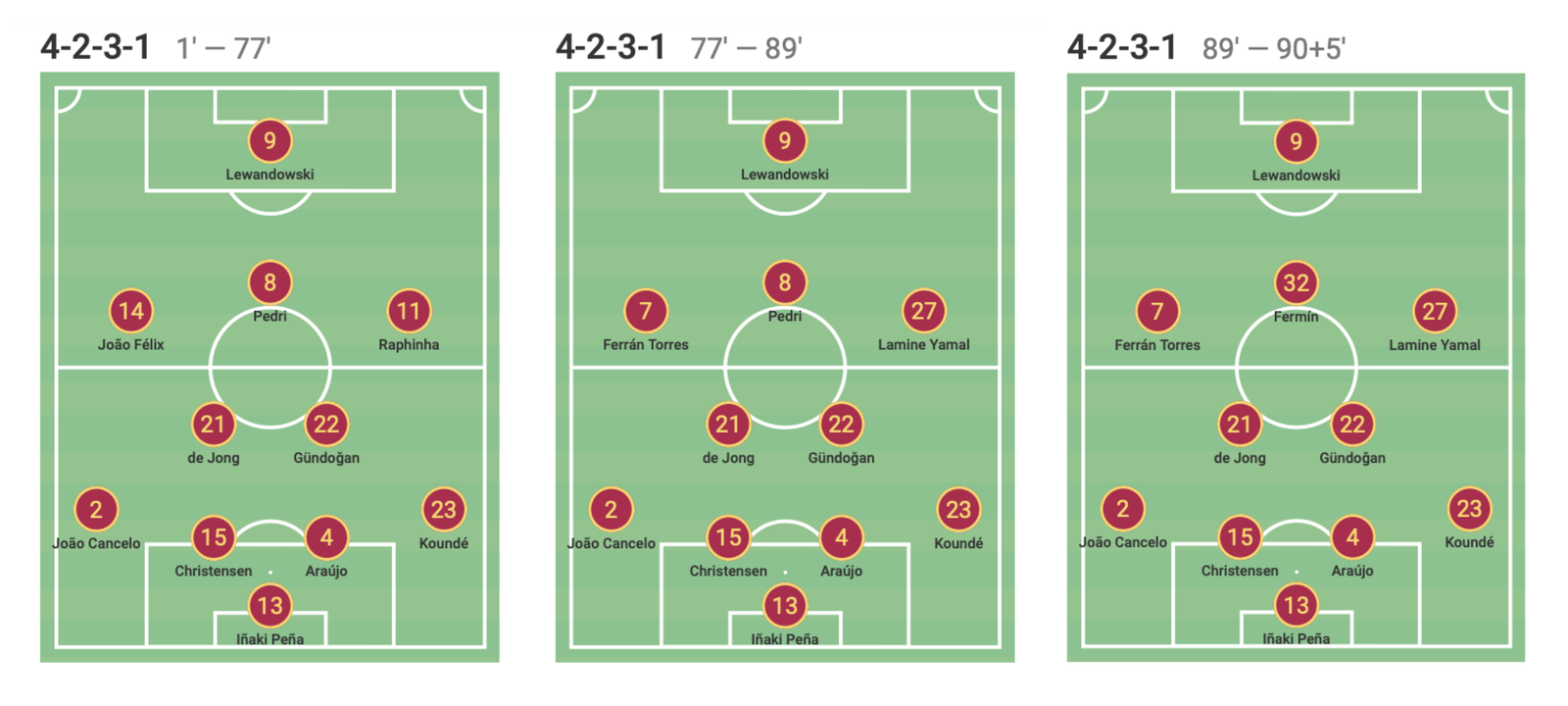
Xavi rang the changes. Picking up the learnings from Porto, he repeated his hand by playing Felix as a left-winger and Cancelo as a left-back who would start deep and arrive high. Balde was benched. Kounde was "moved" to his "not preferable" right-back position, and a last-minute injury concern meant that Christensen was back to pair with Araujo at the centre of the defence.
Last but not least, with Ter Stegen's injury, it was Champions League hero, Inaki Pena back among the sticks. There may be debate on whether it was a 4-3-3 or a 4-2-3-1, but teams rarely play static formations like that, so I will let that be.
What did this mean?
Well, I have always maintained, that for this team and these profiles, Kounde is a far better right-back for Barca than a centre-back. His ability to carry the ball up the field and trackback meant that the right flank was busy with Pedri, Raphinha and Gundogan combining superbly to create attacking overloads while on the left flank, Joao Felix played with a bit in his mouth to prove a point. Cancelo and De Jong controlled the strings on the left and brought in the rear.
Christensen did not put a step wrong and kept things tidy while Araujo was well...Araujo. What it meant in composite though, was that Barca's defence and midfield began playing as a cohesive unit. Something that Barca cannot claim to have done too often this season. This was no possession for possession's sake. The ball moved with intent and within the first 25 minutes, Barca could have been up 3-0. However, since "could" and "should" have no place in football, we will not digress into whataboutery.
So who were the difference makers how did the midfield function?
Let's start by looking at each player individually.
Gundogan's pass maps
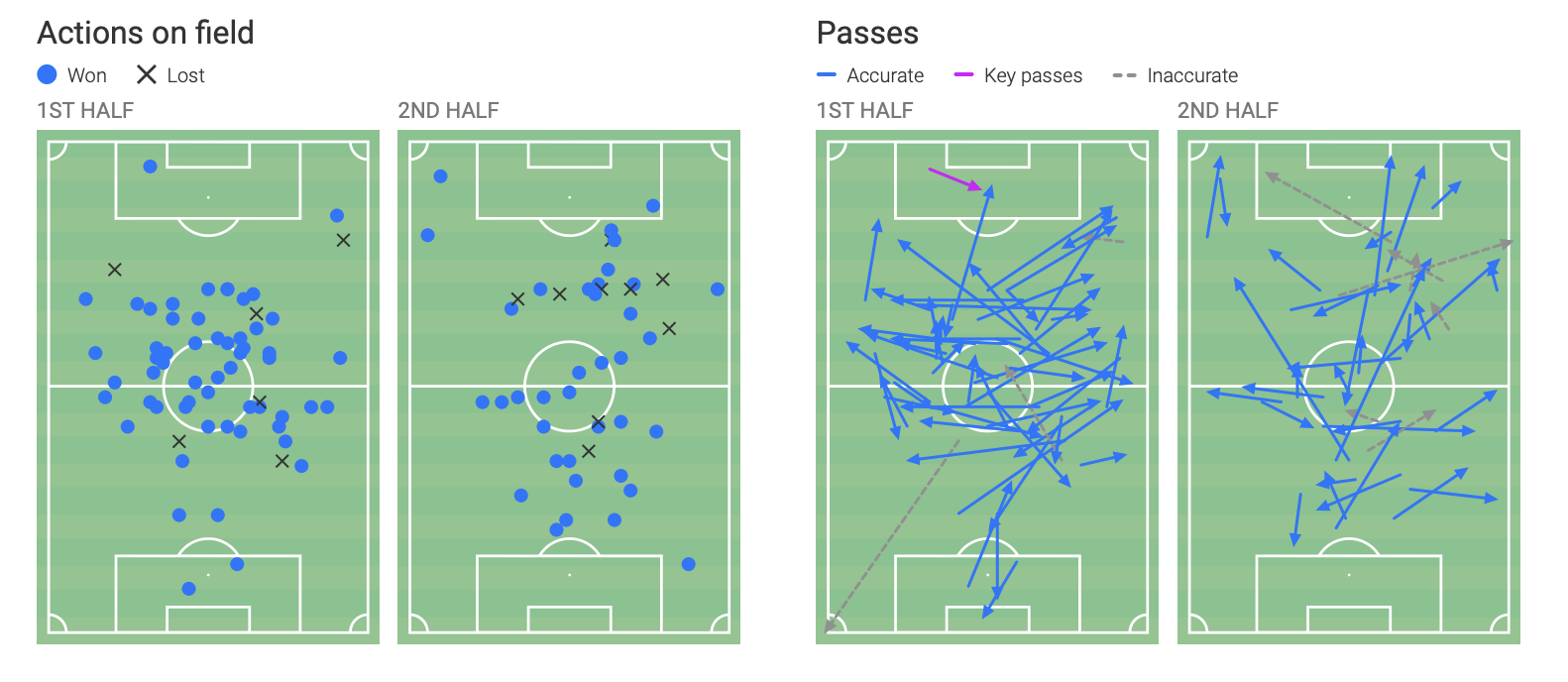
Deeply influential throughout the game, especially in the first half, Gundo was everywhere, picking out passes and dictating play across both flanks while controlling the base of the midfield. A 10/10 performance, this was not just about controlling the tempo, but also dictating the attacking sequences across both flanks while affecting a compact double pivot with Frenkie to shield the defence.
Frenkie De Jong's pass maps
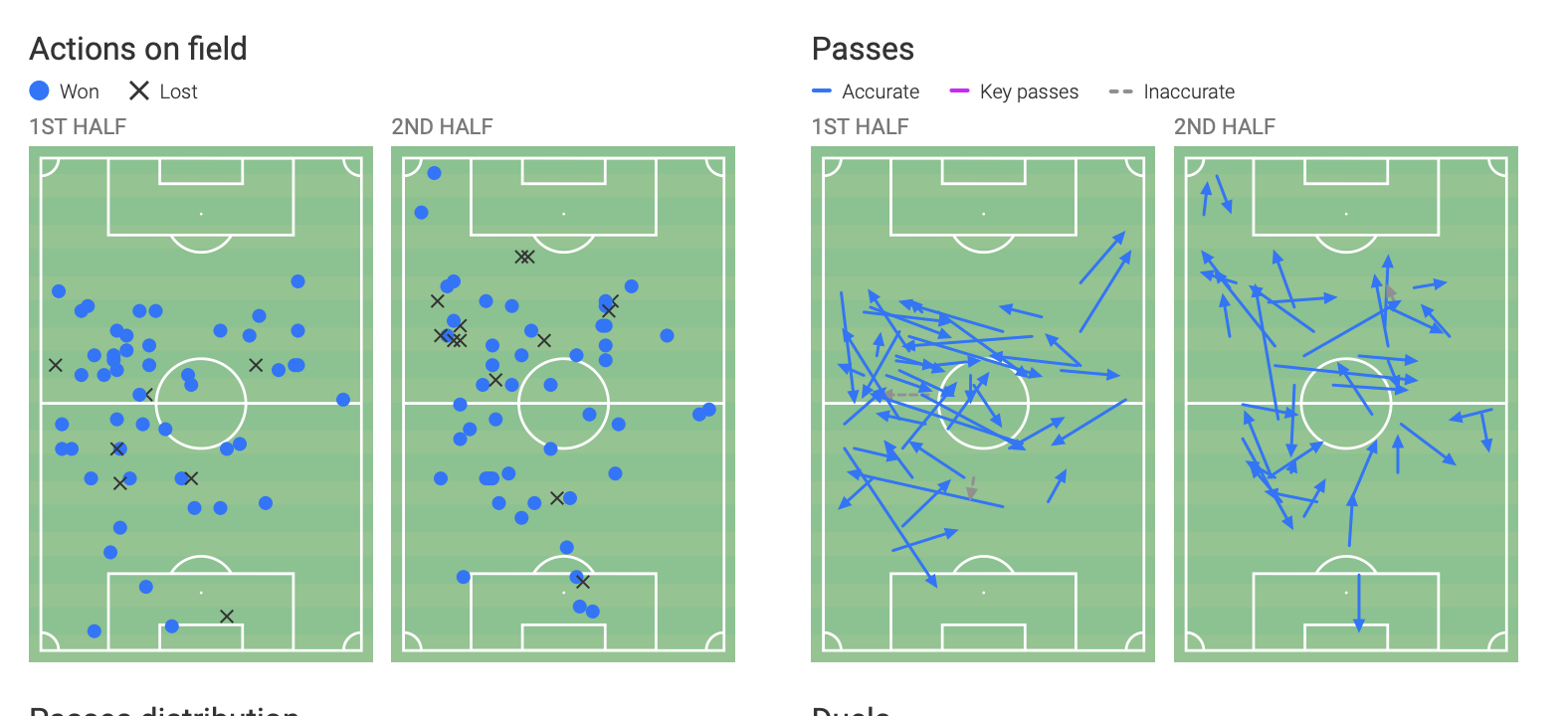
While Gundogan's sphere of influence was a bit more central, Frenkie was more focused on controlling the game in the midfield and influencing Barca's attacks on the left with Felix and Cancelo. Dropping deep and making long carries from the defensive third to the Atleti box, De Jong was instrumental in recycling possession, controlling the build-up play and also ensuring Atleti's press did not overrun the midfield.
It is also true, that Atleti for the first half were in the back seat adapting to Xavi's game plan, which allowed Barca to dominate.
Pedri's zone of influence
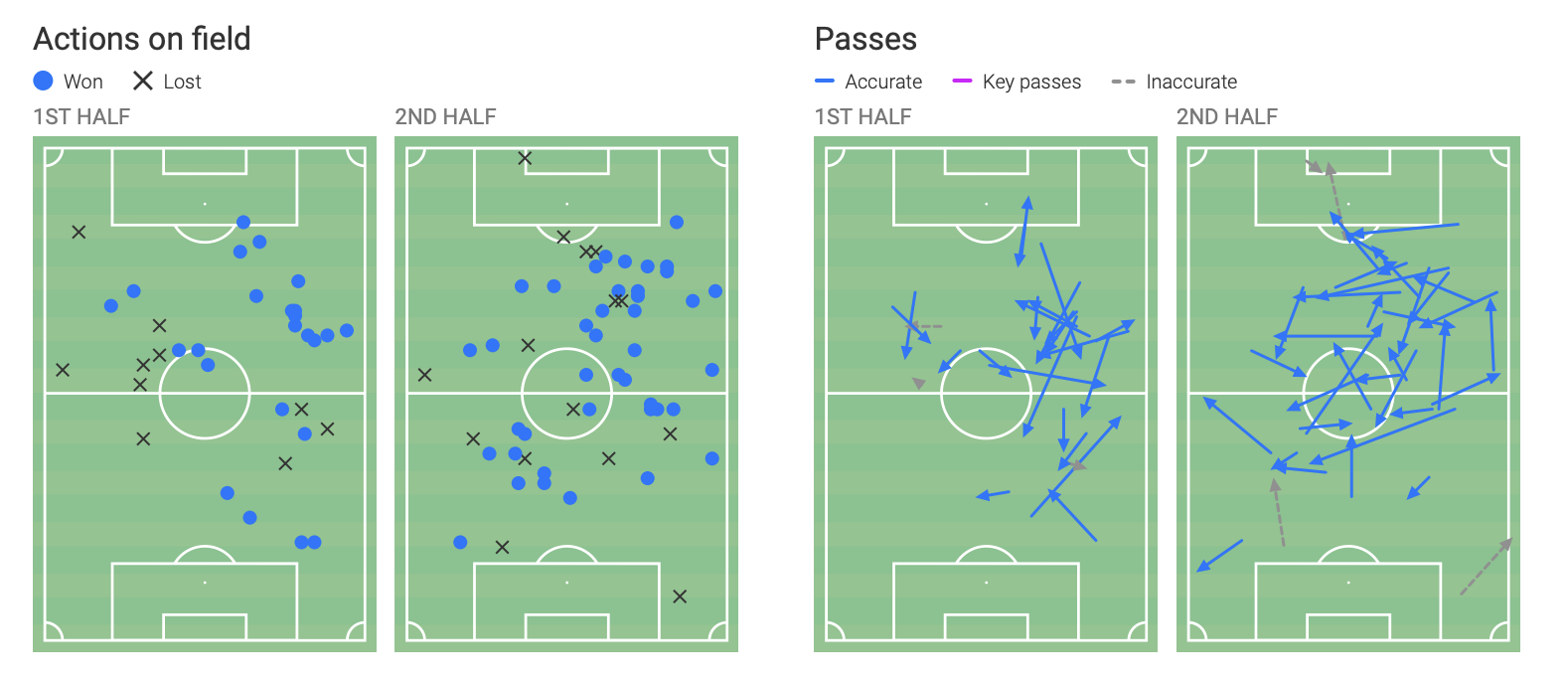
This number 10 role is new for Pedri and while he is still not back at his brilliant best, this was the game where he was the most incisive since his return from injury. Dictating play from the top of the midfield, he combined superbly with Gundogan and Raphinha for the majority of the game and created a ton of questions for the Atelti defence while keeping the midfield zippy. His influence grew along with the game and the hope will be, that as he regains full fitness, he can replicate his performance in clutch games for Barca this season.
Kounde's performance as a right-back
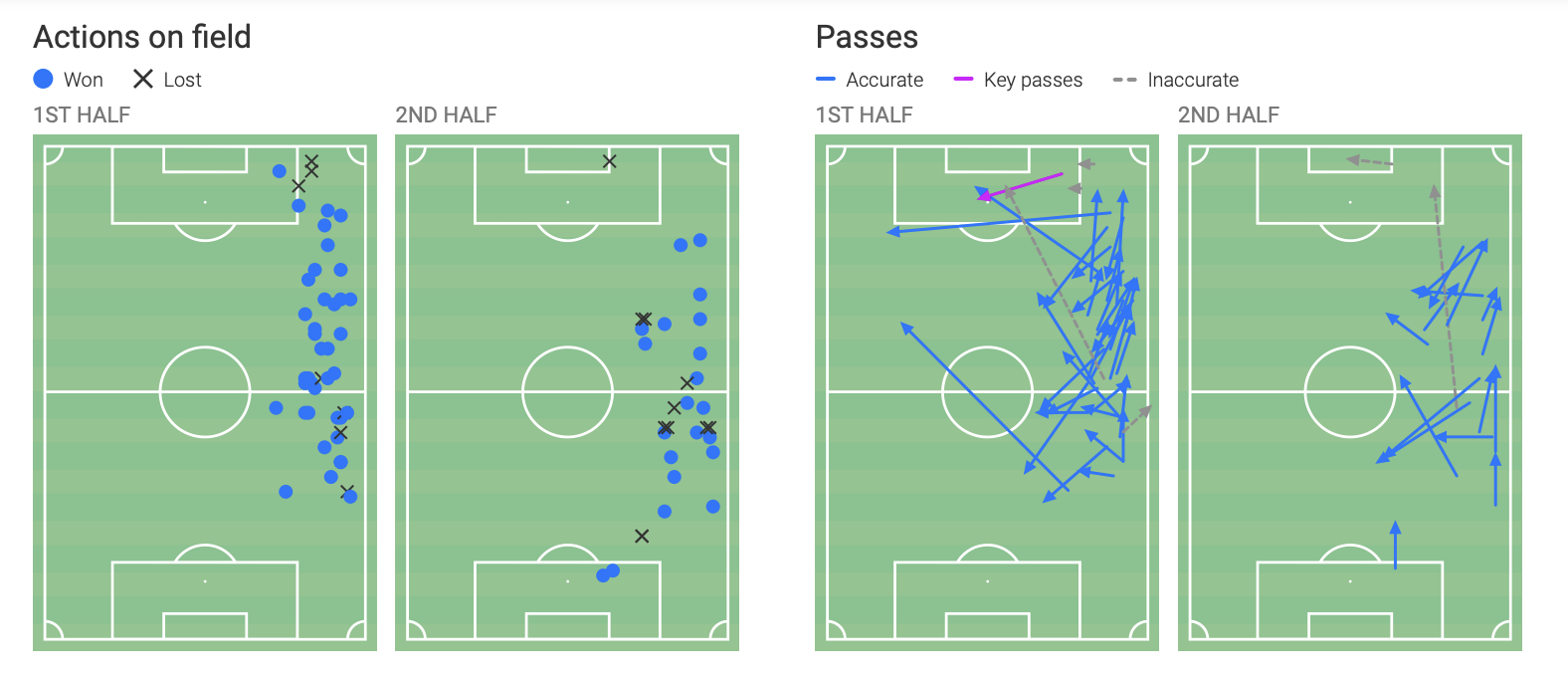
Kounde is a fantastic centre-back. But when he plays as a CB for Barca two things happen. Araujo cannot compensate for his carries down the right and his ability to combine with Raphinha, Pedri and Gundogan. Araujo is fantastic in duels and closing out wingers on the flank, but he compromises on the attacking threat that Kounde can create from that position using deep carries.
The second is that in the Barca highline as a centre-back, when Kounde gets caught in transition, he cannot physically intimidate or win duels against opposition 9s or 10s.
Can Xavi solve this conundrum? That is for time to tell, but in this game, Kounde was simply outstanding, bombing up the flanks. Obviously, he dropped a bit deeper in the second half as Atleti pushed for an equaliser, but he was key in stitching Barca's play on the right and enabling Raphinha to create multiple attacking runs while also helping in creating overloads on the right to switch play when needed.
Christensen's calm recital
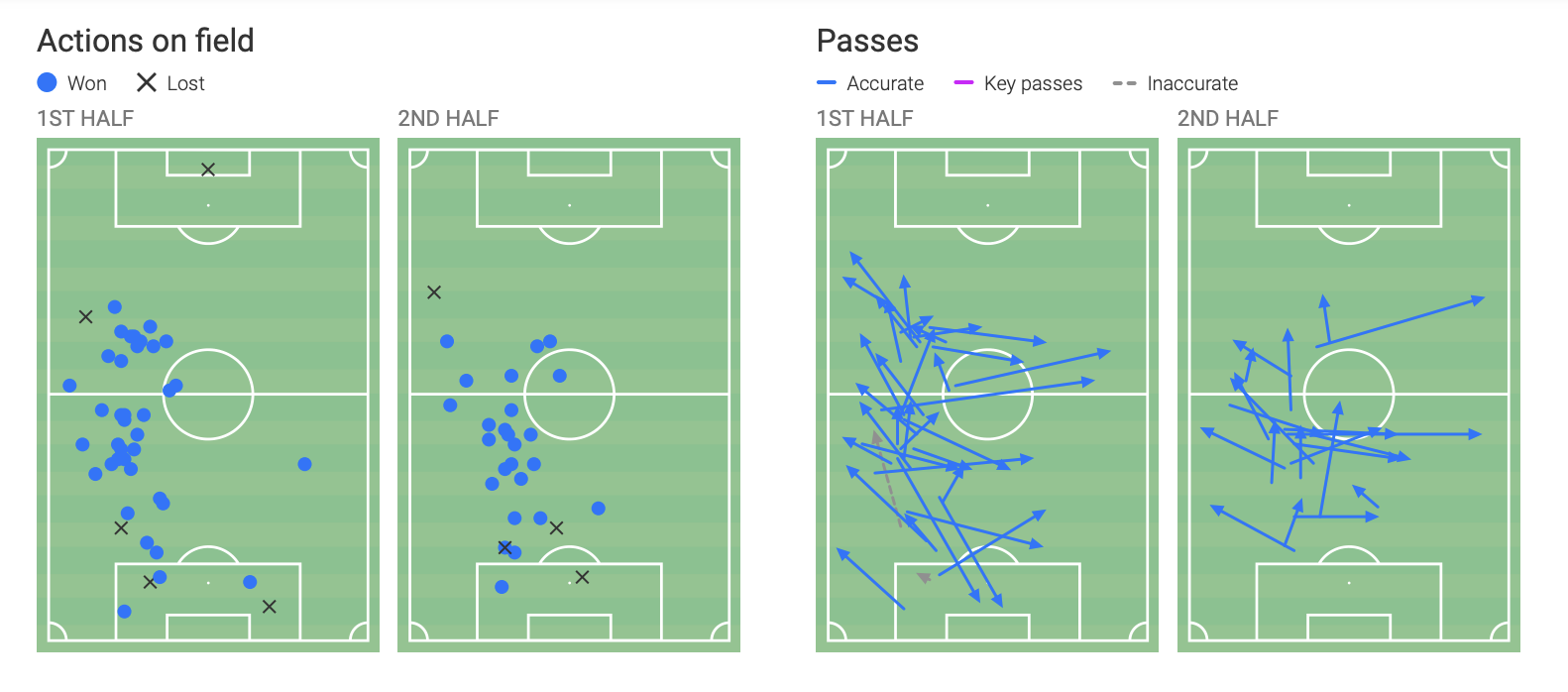
It was almost like he played as a 6. Sweeping behind Frenkie and combining play with Cancelo and Felix, Christensen's resolute defensive oeuvre and control, allowed Frenkie to be far more adventurous, where he could keep the ball at his feet and run creating far more attacking sequences with Felix without having the fear of being caught in transition without anyone to cover.
With Inigo out (injury), Christensen will get a lot more game time, but maybe for this team and these profiles, that's not such a bad thing.
In my eyes Barca's most technically complete defender who can also play as a makeshift 6.
Cancelo's left back journey
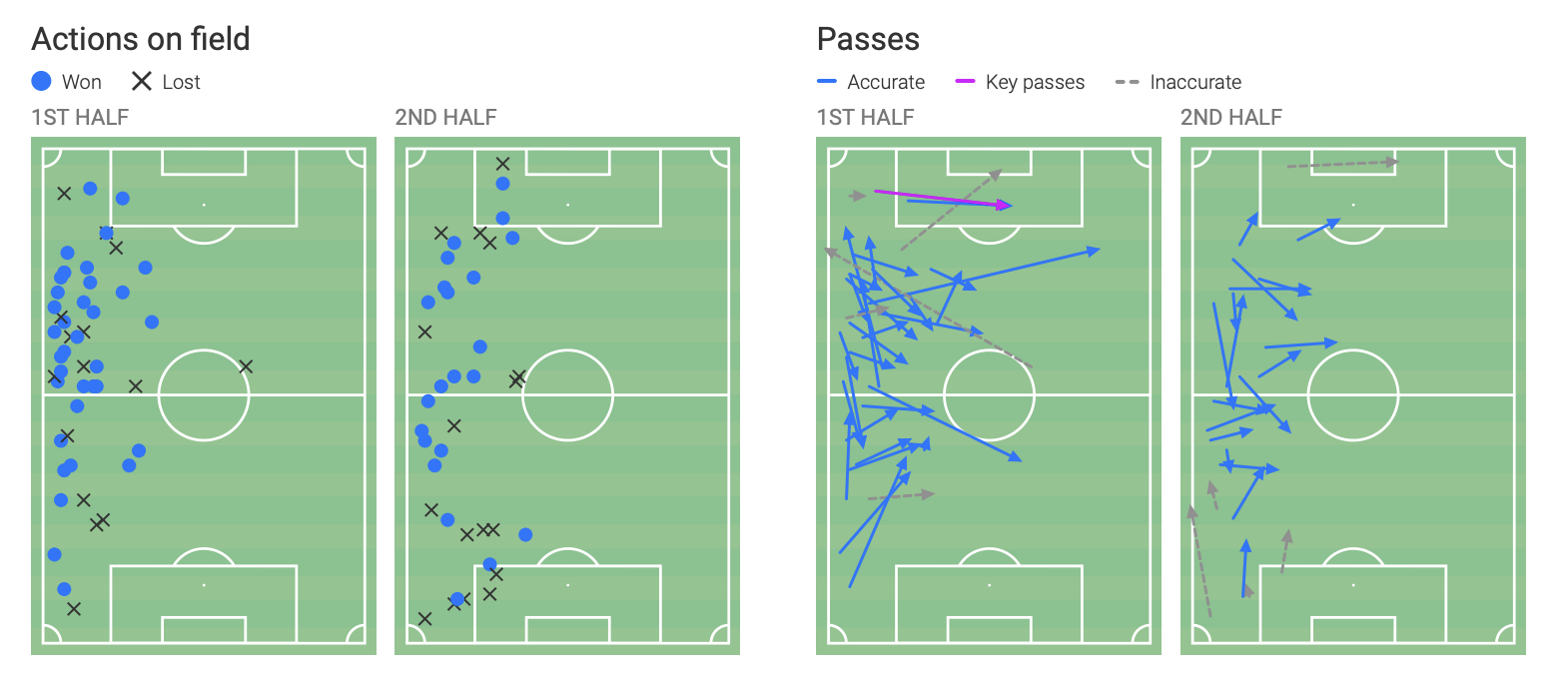
As expected Cancelo wasn't the most defensive-minded in his position, but Christensen's presence covered for his adventurism. He was, however, incessant on that right flank either inverting into the midfield himself or combining through lateral and forward passes to unlock Atleti's defence.
His freedom allowed Felix the space to make those runs. While Balde is much more defensively compact, he is still far too young to have that attacking impact Cancelo has in unlocking Fleix's game or in creating goal-scoring chances himself. Cancelo can be a difference-maker in our attack on his own, something Balde will need time to grow into (he is just 18!).
This will be a potential headache for Xavi since there can be arguments about stymieing Balde's growth. But for me, it's good for an 18-year-old to not take his position in the pro team for granted, play a little less and learn from watching. Balde has everything he needs to be world-class, but he just needs time and maturity to become that player and learn to hone his ultimate attacking output.
How was Barca's combination play?
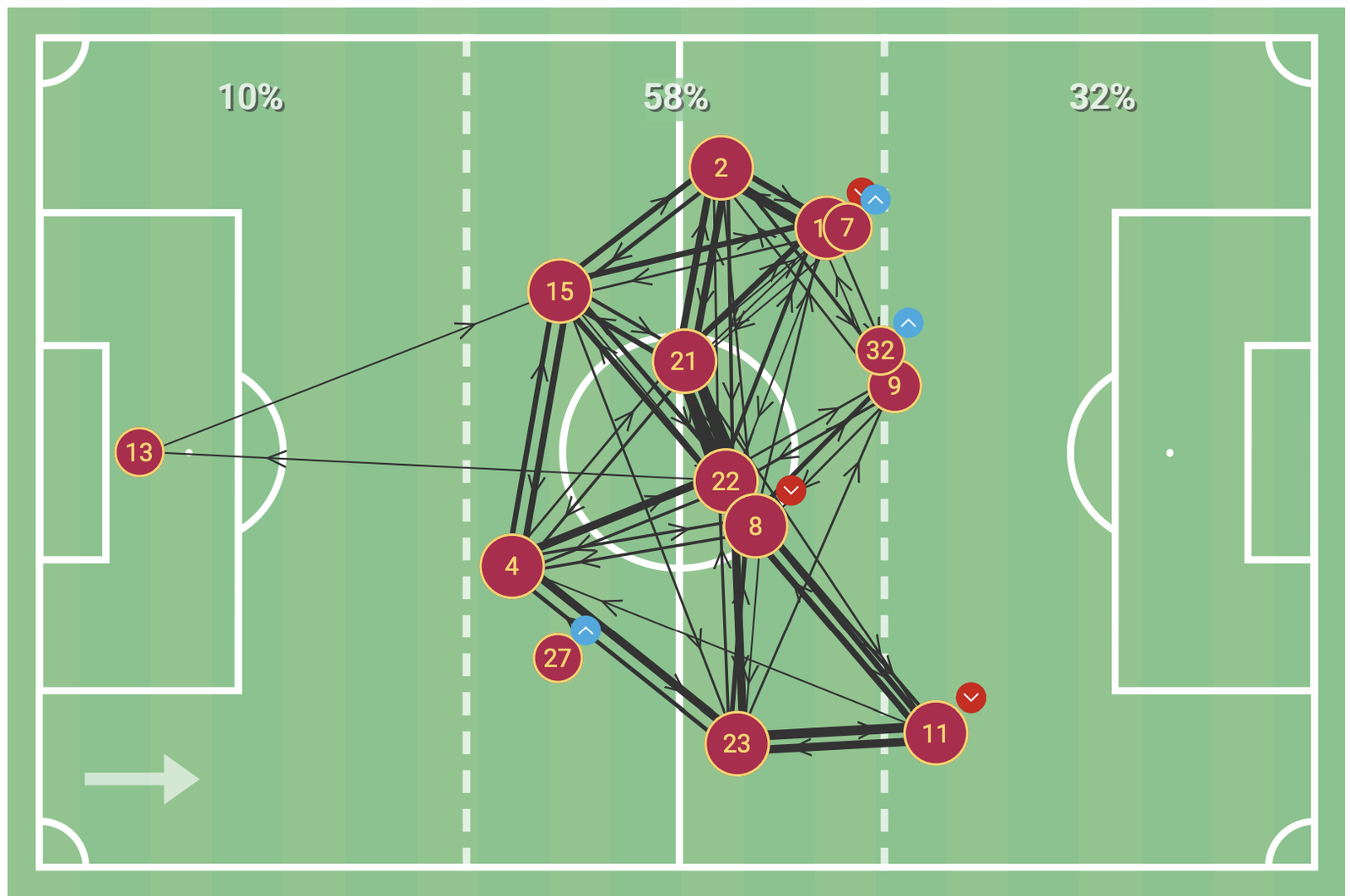
A pretty neat image showing the control Barca had in balancing its midfield to affect play across both flanks while dictating a high line and managing the press. The press faltered in the second half and that will need refining, but if Barca can gain some consistency in formation, it is possible to build on this framework.
This also shows the increased influence players like Pedri, Gundogan, Frenkie, Raphinha, Kounde and Christensen had in managing the heart of the midfield and defence. This is further amplified in the pass combination map below
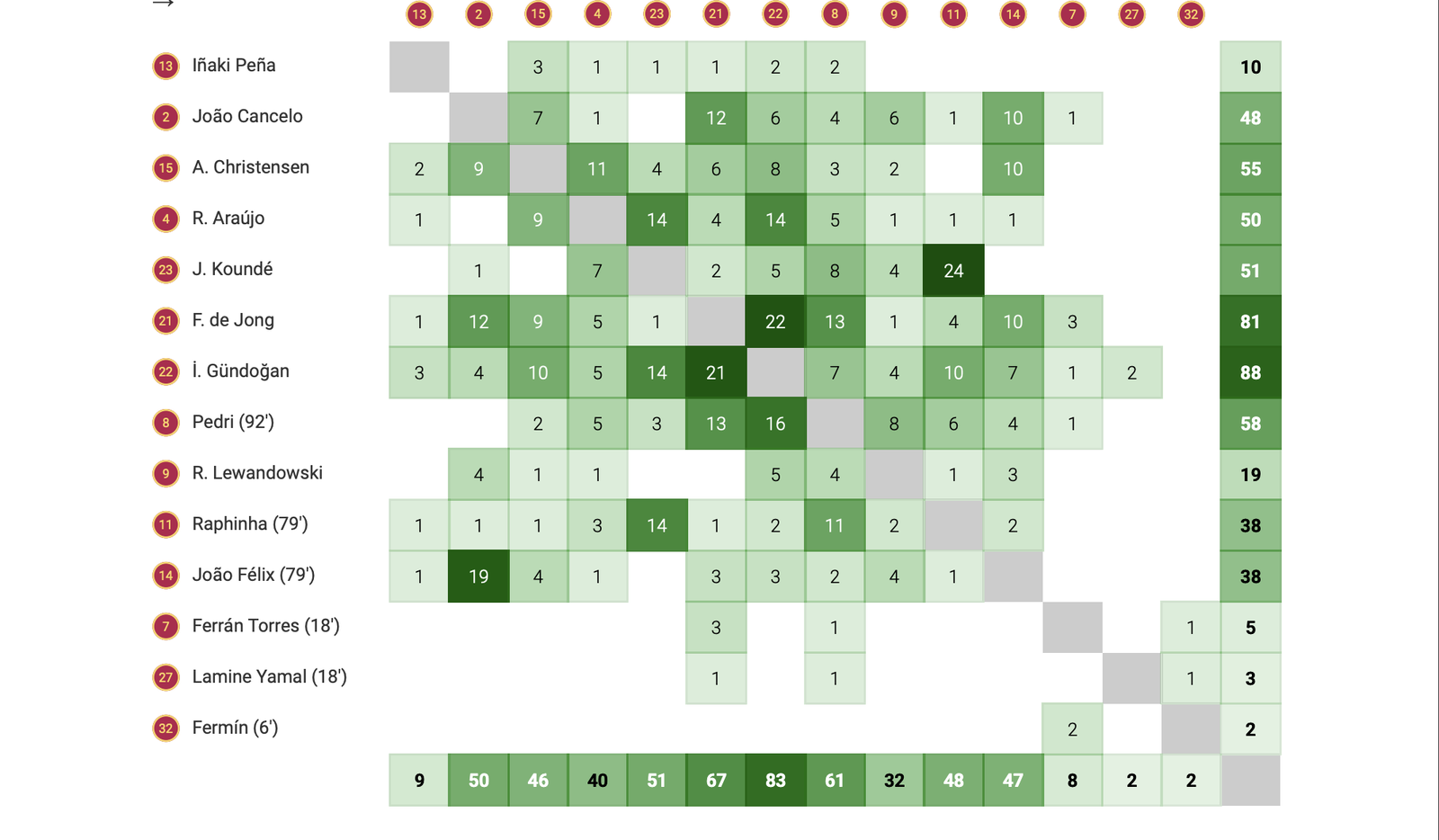
Clearly goes to show the increased influence and improvement in combination play Barca exhibited, compared to games against La Real, Alaves and Rayo. Players like Pedri, Gundogan, and Frenkie De Jong had a far bigger impact in controlling the midfield with excellent supporting acts from Christensen, Kounde, Raphinha and Joao Felix.
Their associative play stats easily prove that the players were comfortable in their roles in this game and were creating spaces for each other to exploit and gain dominance over the opposition.
Can Xavi build on this or will injuries force his hand? Time will tell, but this was the game of the season where Barca looked comfortable in their midfield for a long period against a top team, without looking susceptible to concede on the first counter
Ok, so overall how did Barca perform?
xG

In short, Barca should have scored a lot more and, luckily, they did not concede at the death with two stupendous saves from Inaki Pena. But that is unsustainable and Barca will have to find answers to closing games early since Lewandowski is not really at his clinical best.
Game state

It's clear that Barca tapped out by the 60th minute (like against Real Madrid) and their attacks were limited in the second half, while Atleti gained ascendancy. The only difference was that they did not concede thanks to two outrageous saves from Pena.
Barca has to find ways to hold on to their intensity from the get-go. It's hard when the squad is small with just 19 players (along with the long list of injuries), but that is something Xavi has to work out based on opposition teams and how he sets his players up.
The games against Porto and Atleti gave a glimmer of hope and maybe a framework for how Barca can fix their challenges in midfield, with some tinkering and application. Will Xavi hold to this new formation? Is this akin to last season's 4 box midfield?
Questions that will be answered over the next 23 games.
For now, though, credit where it's due. Xavi coached two pretty important wins in a must-win matchday week which could end up being season-defining!

